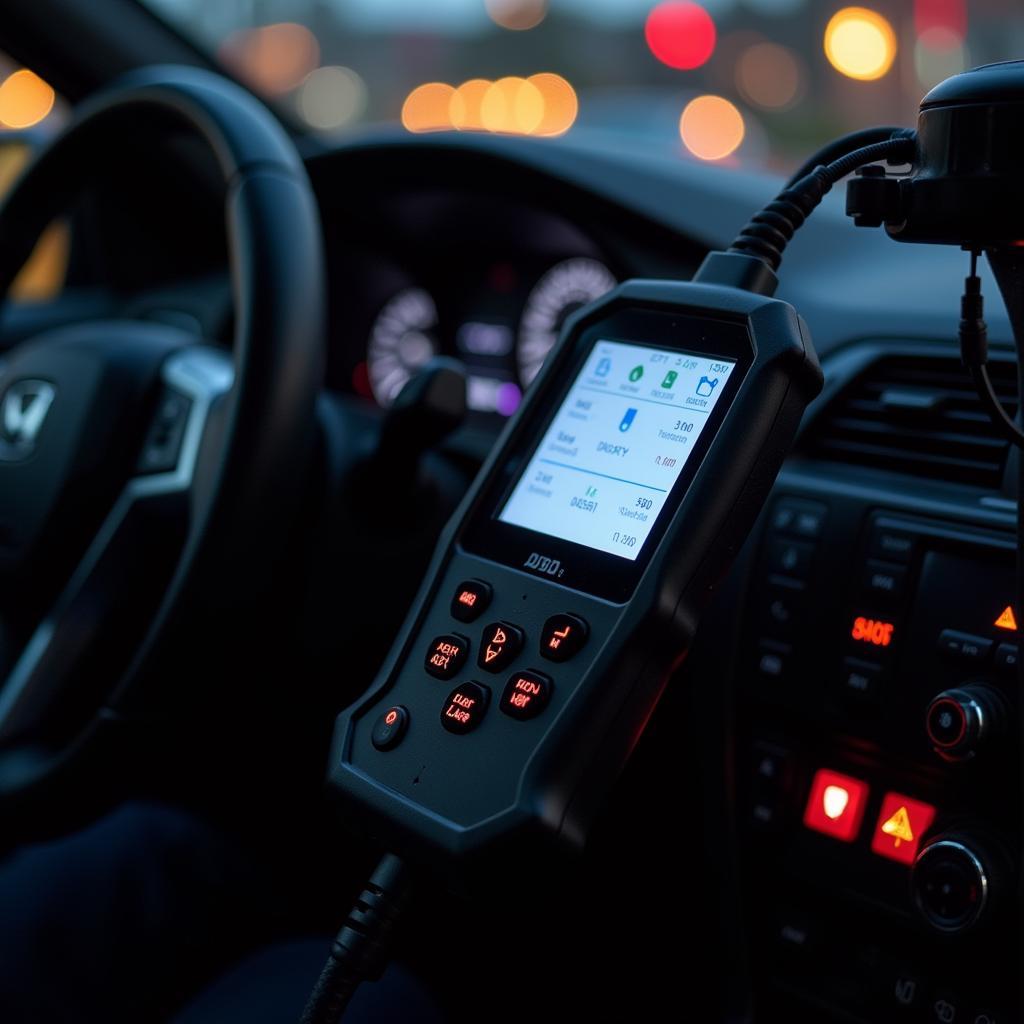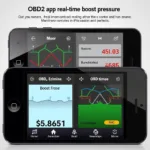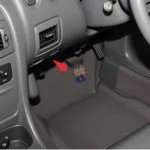Finding the perfect OBD2 scanner for your needs can feel like navigating a maze, especially when faced with claims of devices that can “read everything.” While many scanners promise comprehensive diagnostics, the reality is often more nuanced. This article delves into the world of OBD2 scanners, helping you understand what “reads everything” truly means and how to choose the right tool for your vehicle.
Demystifying “Reads Everything”
The phrase “OBD2 scanner that reads everything” is often used loosely, leading to misconceptions about their capabilities. While OBD2 scanners have come a long way, it’s crucial to understand that “everything” is relative to your vehicle’s make, model, year, and the specific systems it incorporates.
Here’s a breakdown:
- Standard OBD2 Codes: All OBD2 scanners are designed to read standard diagnostic trouble codes (DTCs) related to emissions and engine performance. These codes are standardized across vehicles manufactured after 1996.
- Manufacturer-Specific Codes: Beyond standard codes, manufacturers often use their own proprietary codes for more detailed diagnostics within specific vehicle systems.
- Advanced Functionality: Some scanners go beyond code reading, offering live data streaming, bi-directional controls (allowing you to test certain components), and access to advanced systems like ABS, airbags, and transmission.
Therefore, an OBD2 scanner that reads “everything” ideally accesses both standard and manufacturer-specific codes across all vehicle systems. However, achieving this level of comprehensiveness often requires specialized, professional-grade scanners.
Factors to Consider When Choosing an OBD2 Scanner
- Your Vehicle’s Make and Model: Identify your vehicle’s specific diagnostic needs. Some scanners are tailored for certain car brands or models.
- Your Diagnostic Needs: Determine the level of detail you require. Do you need basic code reading, or do you want to delve into live data and advanced diagnostics?
- Budget: OBD2 scanners range from affordable basic models to high-end professional tools. Set a realistic budget based on your needs.
Types of OBD2 Scanners
- Basic Code Readers: These entry-level scanners are budget-friendly and primarily read and clear standard OBD2 codes.
- Mid-Range Scanners: Offer more features, including live data streaming, some manufacturer-specific code reading, and basic bi-directional controls.
- Professional-Grade Scanners: Designed for mechanics and advanced users, these scanners offer comprehensive diagnostics, bi-directional controls for various systems, and often include software for PC-based analysis.
“Choosing the right OBD2 scanner is about understanding your needs and finding a balance between functionality and cost,” says John Smith, Senior Automotive Diagnostic Technician at XYZ Auto.
Key Features to Look For
- Code Definitions: The scanner should provide clear and concise definitions for both standard and manufacturer-specific codes.
- Live Data Streaming: Allows you to view real-time sensor data, crucial for diagnosing intermittent issues or monitoring system performance.
- Bi-Directional Controls: Enables you to test components and systems by sending commands, aiding in pinpointing faults.
- Software Updates: Regular software updates ensure compatibility with new vehicle models and features.
Common Misconceptions
- All OBD2 Scanners are the Same: This is far from true. Scanners vary significantly in functionality, features, and the depth of diagnostics they offer.
- An Expensive Scanner Guarantees “Reads Everything”: While professional-grade scanners offer comprehensive capabilities, they might still have limitations depending on the vehicle’s make and model.
Conclusion
Finding an “OBD2 scanner that reads everything” requires understanding that “everything” is relative. Consider your vehicle’s specific needs, your diagnostic goals, and your budget to make an informed decision.
Remember, the right OBD2 scanner empowers you to take control of your vehicle’s health, saving you time, money, and potential headaches down the road.
FAQs
1. Can an OBD2 scanner diagnose every problem with my car?
While OBD2 scanners are powerful diagnostic tools, they might not diagnose every problem. Some issues might be mechanical or electrical in nature, requiring further inspection beyond the OBD2 system’s scope.
2. Do I need a professional-grade scanner for basic car maintenance?
For basic maintenance like reading and clearing engine codes, a basic or mid-range scanner is often sufficient.
3. How often should I update my OBD2 scanner’s software?
It’s recommended to check for software updates regularly, ideally every few months, to ensure compatibility with the latest vehicle models and features.
4. Can I use the same OBD2 scanner on different car makes and models?
Yes, most OBD2 scanners are compatible with a wide range of car makes and models manufactured after 1996. However, the depth of diagnostics might vary depending on the scanner’s capabilities and the vehicle’s specific systems.
5. Where can I find reliable reviews and comparisons of OBD2 scanners?
Reputable automotive websites, forums, and publications often provide comprehensive reviews and comparisons of various OBD2 scanners, helping you make an informed choice.
Looking for an OBD2 scanner that suits your needs?
Check out our obd2 scanner for sale in durban page for a wide selection of reliable and affordable options.
Need expert advice? Contact us on WhatsApp: +1(641)206-8880, Email: [email protected]. Our team is available 24/7 to assist you.


